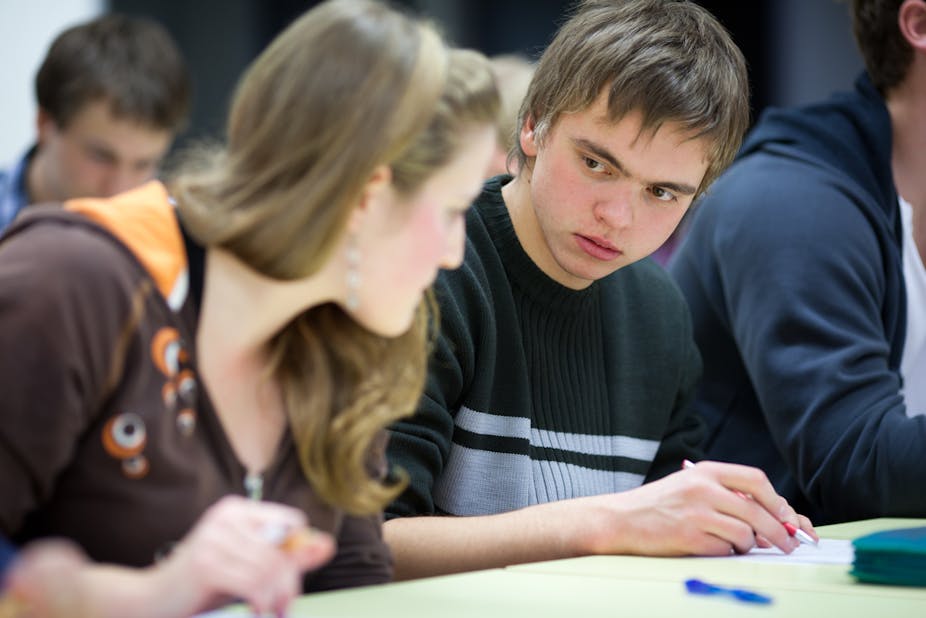Fewer than one in four young people with autism continue their education after school. Too often, colleges and universities are just not equipped or well-enough prepared to support young people with autism to move into further or higher education. There are also problems with their transition from school. Even where schools do provide support for young people with autism, there are often few links between schools and colleges to help a young person on to the next stage of his or her education.
However, a new law that came into force in 2014 enshrined the right of young people with special educational needs and disabilities to get support in education and training up until the age of 25. The education, health and care plan for young people, introduced by the Children’s and Families Act 2014 also provided for each young person to receive a personal budget for that support. Local authorities are obliged to ensure that the amount of direct payments allocated to each young person is sufficient to secure their agreed provision of education.
As a result of these changes to the law, further education colleges are required to accept new responsibilities relating to education for young people with special educational needs and disabilities. To help colleges prepare for changes relating to young people with autism, the Department for Education commissioned the autism charity, Ambitious about Autism, to run a programme aimed at improving educational opportunities for young people with autism after they leave school.

The Finished at School programme ran from April 2013 until March 2015. Working with its partners, Nasen, and the Association of Colleges, the charity built upon its earlier campaign for better educational opportunities for young people with autism. The 110 young people involved in the programme all had a diagnosis of autism that was “complex”, meaning that it was associated with other learning difficulties. The young people were between the ages of 14 and 19, and were all preparing to make a transition in their education at the end of Years 11 or 13.
Finished at School involved four college hubs, each working with three local partner secondary schools to support the young people with autism to make a successful transition to education after school – be that university or a further education college.
Making a successful transition
The programme was evaluated by our team from the Centre for Educational Development, Appraisal and Research at the University of Warwick. The evaluation collected data from school, college, and local authority staff, along with the young people with autism, their parents and carers, and the final report had some very positive findings.
Of the 110 young people involved in the programme, all 45 who left school at the end of the 2014 summer term made successful transitions to continued education, with 34 of them progressing to general further education colleges. In addition, four made successful transitions to specialist further education colleges, and seven to school sixth forms. The rest of the 110 young people will make their transitions in the coming years.
The young people who took part in the evaluation gave accounts of how good transition planning under the programme had helped them take up new opportunities. One young person with anxiety issues explained:
The college link with my school helped a lot, and the taster days too. I came to the college every Thursday, and that was good. The taster days gave us an impression of what they do. I wanted to see what site I wanted to be in. I decided to come to this site because it’s more, like, calm. It’s very small, and it’s very calm and everyone is just really nice.
Young people at the centre of the decision
Another important success came with a three-day training programme for college and school staff involved with supporting the young people’s transition to college. The core of the training focused on an approach that recognised that what matters most is the young person’s voice about their own future and needs. The training proved to be highly valued by staff.
The programme also helped improve and extend local partnerships using the project hubs. These, in turn, were linked in to pre-existing strategic planning forums and partnership boards with roles in provision and support for young people with autism. At the college level, all the participating colleges also amended their strategic plans to write in support for learners with autism.
More can be definitely be done to support young people with autism as they make choices about what to do after school. The programme demonstrated that along with appropriate support, locally-coordinated transition plans that put young people with autism at the centre means many more young people with autism, including complex autism, can access local college life successfully.

